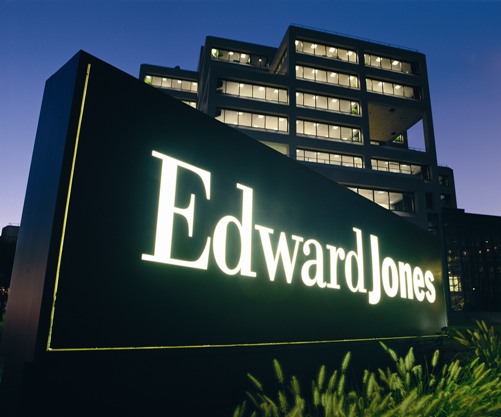Brokerage firm Edward Jones this week announced that it plans to add up to 20 branch offices to the more than 60 it has in the state of Utah.
Brokerage firm Edward Jones this week announced that it plans to add up to 20 branch offices to the more than 60 it has in the state of Utah.
But Utah, of course, isn’t the only territory that the St. Louis-based broker is targeting. The firm has a goal of expanding its top line by 10% this year, with half the growth coming from hiring new advisers and the rest by boosting the productivity of its 12,000 or so current brokers. “We want to continue to grow,” said Dan Timm, the Edward Jones partner responsible for branch development.
The firm plans to increase its current rep force by 600 net advisers this year according to Mr. Timm. However, if the firm has the same attrition rate it did last year —15%— that means Edward Jones would have to recruit up to 2,400 new advisers this year to hit its aggressive growth targets.
It won’t be easy. The recruiting environment has gotten far more difficult as the worst of the financial crisis fades into memory. In 2009, with the markets in turmoil and investment firms dropping like flies, Edward Jones increased its adviser ranks by 900. But last year, the firm had net growth of only 54 advisers, and the picture isn’t much better so far in 2011, Mr. Timm said. “We’re not yet where we want to be this year,” he said, “but we’re optimistic that we have a good shot of hitting our target.”
The most desirable markets for the company, along with Utah, include California, Arizona and the Northeast — places where the Midwest-oriented broker has relatively few advisers currently. And what of the competition as other broker-dealers and advisory firms also look to beef up their ranks?
“We don’t worry much about the competition,” said Mr. Timm. “It’s a little like McDonald’s and Burger King. If it’s a good location and the demographics are good, we don’t worry about being on the same corner as the competition.”
On the productivity side of the equation, the firm is aggressively raising the bar for its advisers in terms of gross-production expectations. Brokers are expected to bring in a minimum gross of $240,000 this year and $264,000 in 2012. That’s up from a $216,000 threshold in 2010. Those advisers who don’t meet the targets go on a “performance improvement plan” — a.k.a. the penalty box. If they don’t hike their production after that, these reps will leave the firm.







